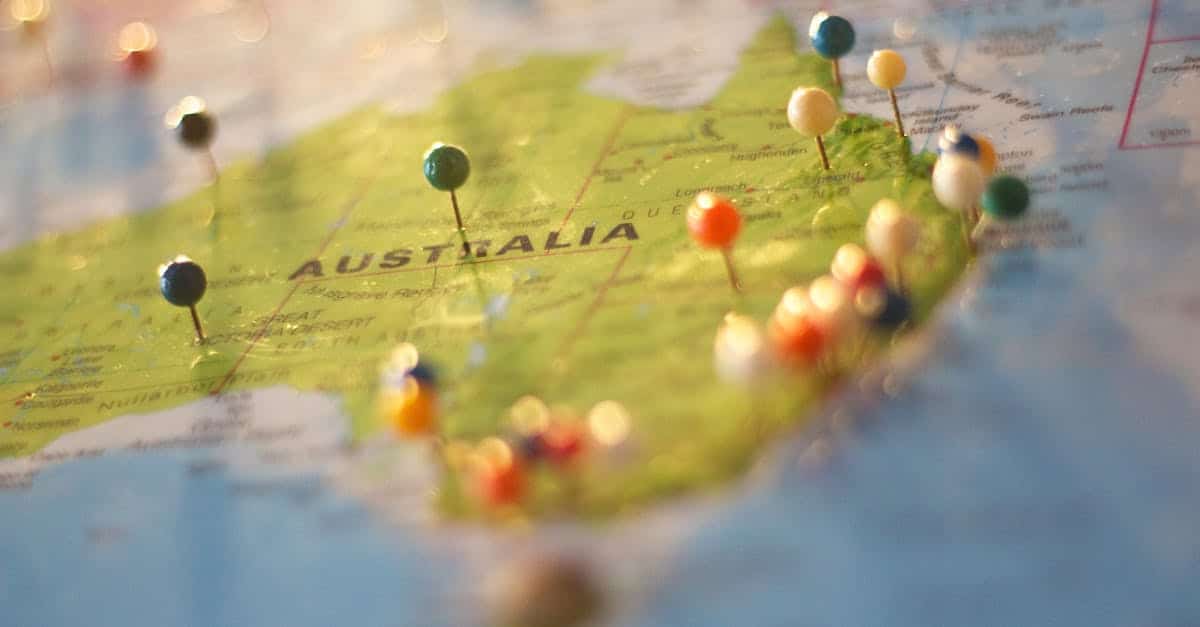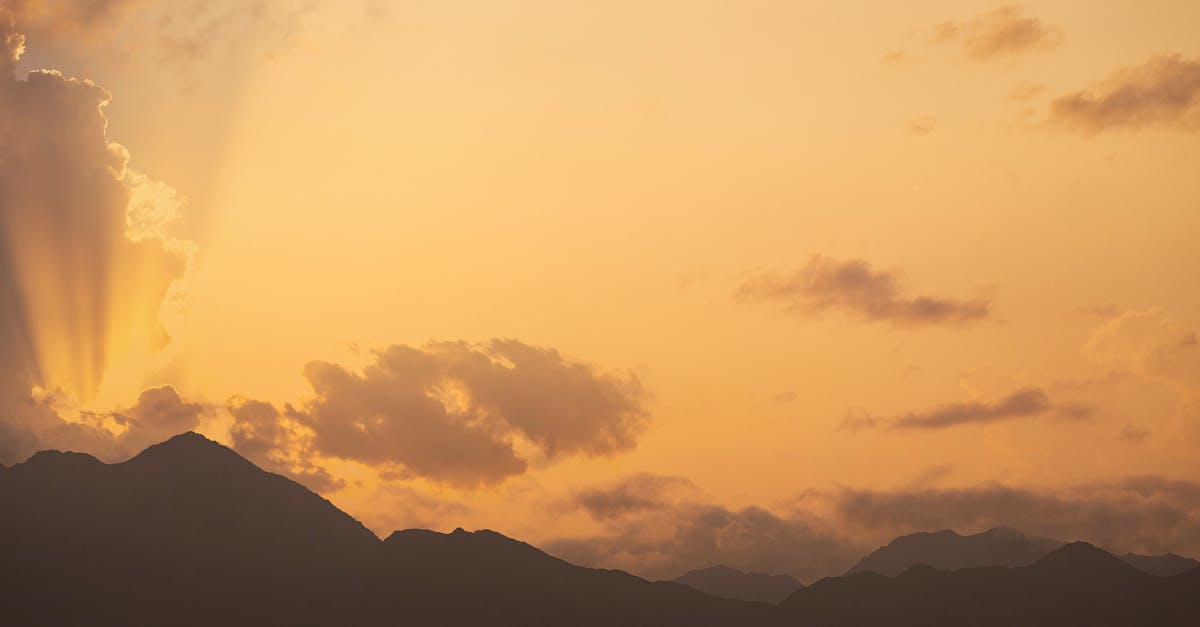|
IN SHORT
|
Ah, Canada! This vast country with breathtaking landscapes, where majestic mountains rub shoulders with crystal clear lakes and lush forests. If you dream of discovering the wild beauty of this country, you are in the right place! Planning a trip to Canada may seem like a daunting task, but don’t worry, I’m here to guide you. Whether you’re looking for extreme adventure, rich cultural discoveries or simply a little piece of paradise to recharge your batteries, there are so many things to consider before packing your bags. So, fasten your seat belts, we’re going to dive into the exciting world of preparing for your stay in Canada!
Prepare your Canadian adventure
Canada, this vast country with breathtaking landscapes and diverse culture, attracts millions of visitors every year. But before embarking on this adventure, it is essential to prepare your stay well. In this article, we will explore the different steps to optimize your trip to the land of caribou, crystal clear lakes and vibrant cities. From planning your itinerary to choosing activities, here are our tips for an unforgettable experience!
Choosing the right time to visit
Canada is a country with four distinct seasons, each offering unique experiences. Whether you love skiing, hiking or festivals, choosing the right time to go is essential.
Spring and summer: festival season
If you want to enjoy festivals, open-air markets and activities in nature, the summer period, from June to September, is ideal. The temperatures are pleasant and you can explore the national parks to admire the flora and fauna. Don’t let it pass International Jazz Festival from Montreal or Caribana in Toronto, true cultural celebrations!
Autumn: flamboyant colors
For lovers of landscapes, the fall season (September to November) is a real treasure. The forests appear in shades of red, orange and gold, offering spectacular views. Consider visiting the region of Laurentians for a car ride in the heart of these breathtaking colors.
Winter: magical magic
Winter sports enthusiasts will find what they are looking for between December and March! Skiing, snowboarding, and even snowmobiling are in the spotlight in resorts like Whistler Or Mont Tremblant. And who knows, you might even see the Northern Lights in the Far North!
Necessary documentation for the trip
Before you embark on your trip, make sure you have all the necessary documents. Administrative preparation may seem boring, but it is essential to avoid hassles upon your arrival.
Visa and travel authorization
Depending on your nationality, you may need a Visa or a Electronic Travel Authorization (eTA) to enter Canada. Check the specific requirements by consulting the official Canadian government website. Once this point is clarified, you will be able to travel with peace of mind!
Travel insurance
Another often overlooked but crucial aspect is travel insurance. Cover yourself against unforeseen events such as cancellations, medical expenses abroad, or loss of luggage. It would be a shame to spoil your stay because of a small mishap!
Develop your itinerary
Once the administrative aspects are in place, it’s time to organize your itinerary. With so many wonders to discover, you won’t know where to turn!
Cities not to be missed
Three Canadian metropolises stand out: Montreal, Toronto And Vancouver. Each of them has a unique character, reflecting the cultural richness of the country.
Montreal is famous for its mix of cultures, historic architecture and gastronomy. Don’t miss Old Montreal and the Mount Royal Mountain for a panoramic view of the city.
In Toronto, visit the CN Tower and stroll through the Kensington Market district. The city’s culinary diversity will delight gourmets!
Finally, Vancouver is a true paradise for nature lovers. Between the mountains and the ocean, there is no shortage of outdoor activities. Take the time to visit the Stanley Park and the Capilano Suspension Bridge.
Exploring nature and parks
Canada is also renowned for its National parks. Consider including visits to parks like Banff and the Jasper, where you can hike, observe wildlife and admire turquoise blue lakes. Do not forget your camera!
Choose your means of transport
Canada is a vast country, and the choice of transportation is essential to fully enjoy your stay.
Car rental
Renting a car can be a great option, especially if you plan to visit multiple areas. This will allow you to discover isolated places that public transport does not serve. Be sure to research the main roads and their conditions, especially in winter.
Public transport
Major Canadian cities are well served by public transportation. The Toronto subway, the STM in Montreal, or the SkyTrain in Vancouver are practical choices for exploring the city without worrying about parking.
| Aspects to prepare | Practical advice |
| Necessary documents | Check your passport and, if necessary, a visa or Esta. |
| Money | Ask about the local currency and payment options. |
| Weather report | Check the forecast to choose the right clothing. |
| Transportation | Book your flights and find out about local transport. |
| Accommodation | Compare hotel, hostel or rental offers. |
| Activities | Plan your visits and excursions according to your interests. |
| Travel insurance | Consider insurance to cover the unexpected. |
- Choose the best season: Summer for mild climate, winter for snow sports.
- Necessary documents: Valid passport and, if necessary, a visa.
- Book accommodation: Hotels, hostels or Airbnb accommodation depending on the budget.
- Plan trips: Car rental or public transport depending on the region.
- Unmissable activities: Visit national parks, historic cities and cultural sites.
- Local cuisine: Don’t miss the poutine and maple syrup.
- Money and budget: Provide Canadian dollars for everyday expenses.
- Travel insurance: Take out insurance to protect yourself from unforeseen events.
- Language: Prepare a few sentences in English and French.
- Respect the environment: Follow conservation rules during nature visits.
Budget and expenses
Establishing a clear budget is a crucial step in preparing for your trip.
Cost of living in Canada
The cost of living varies considerably from province to province. In general, larger cities like Toronto and Vancouver are more expensive than smaller cities. Plan a budget for meals, accommodation and activities. Consider choosing alternative accommodation such as youth hostels or Airbnbs, which are often less expensive.
Discounts and good deals
Do not hesitate to search for tourist maps which offer discounts on attractions and public transport. Tips like eating at restaurants popular with locals can also help you save money while experiencing local cuisine.
The essentials of Canadian cuisine
No successful trip is complete without savoring the local culinary specialties! Canadian gastronomy is eclectic and reflects the country’s multicultural history.
The emblematic dishes
Don’t miss the unemployed pudding, a typically Canadian dessert, and famous shepherd’s pies. If you are passing through Quebec, taste the poutine, this dish made with fries, cream cheese and brown sauce that will make hearts sink!
Local markets
Farmers’ markets, especially in Toronto or Montreal, are perfect places to taste fresh produce while supporting local producers. The discovery of traditional dishes will immerse you in the heart of Canadian culture.
Activities not to be missed
Finally, to fully enjoy your stay, here are some recommended activities:
Outdoor activities
Whether you’re a fan of hiking, cycling or water sports, Canada is full of opportunities. THE hikes to the top of the Rockies will leave you with memorable memories, just like kayaking trips in the fjords of Quebec.
Cultural discoveries
Immerse yourself in Canadian culture by visiting museums like the Museum of Fine Arts in Montreal or Royal Ontario Museum in Toronto. Attend traditional music or dance performances to experience total immersion.
Practical advice for a peaceful trip
Finally, a few practical tips can make all the difference during your stay.
Learn a few words of French and English
In Canada, two languages coexist. Learning the basics of French and English will allow you to facilitate exchanges and create links with locals. Even a simple “hello” can open doors!
Taking care of the environment
Canada is a country rich in biodiversity. Respect nature by following marked trails, leaving no waste behind, and limiting your impact on the environment during your explorations.
Prepare suitable luggage
Preparing your suitcase well is essential. Depending on the season, adapt your clothes. In spring and summer, wear light clothing and a good pair of hiking shoes. For winter, don’t forget your thermal layers, your warm coat and accessories such as gloves, scarf and hat.
Electronic devices
Consider bringing your electronic devices, but check the compatibility of electrical outlets. It may be wise to get an adapter so as not to run out of battery during your discoveries!
Learn about local customs
Each destination has its own customs and it is important to adapt to them. For example, in Canada, it is common to say “thank you” after a service or interaction. Learning some cultural specificities will enrich your experience and open the way to warm encounters.
All you have to do is put all these tips into practice to have a memorable experience in Canada. Each step of your preparation will bring you a little closer to this fascinating country, full of surprises and adventures!
Frequently Asked Questions
When is the best time to visit Canada? The best time to visit Canada depends on your preferences. Summer is ideal for outdoor activities, while winter is perfect for enjoying snow sports.
What documents are needed to enter Canada? Travelers must have a valid passport and, depending on their nationality, a visa or an Electronic Travel Authorization (eTA).
How to get around Canada? You can use public transport, rent a car or take trains between major cities. Ride-sharing services are also popular.
What are the must-do activities in Canada? Among the must-do activities, we find visiting Niagara Falls, discovering national parks, and exploring cities like Toronto, Vancouver and Montreal.
What is the official language of Canada? Canada has two official languages: English and French. Visitors can expect to find services in both languages.
Is Canada a safe country for tourists? Yes, Canada is generally considered a safe country for tourists, with low crime rates and quality health infrastructure.
What is Canadian cuisine like? Canadian cuisine is varied and influenced by many cultures. Don’t miss out on tasting specialties like poutine, maple syrup and smoked salmon.
What are the accommodation options in Canada? Canada offers a wide range of accommodation, from luxury hotels and hostels to vacation rentals and campsites.
Should you worry about tipping in Canada? Yes, it is common to tip 15-20% in restaurants and for customer service.
What advice would you give for a first trip to Canada? For a first trip, try to plan your itinerary in advance, learn about the local culture, and be prepared to adapt to weather conditions.




